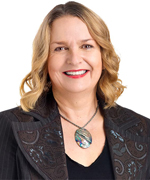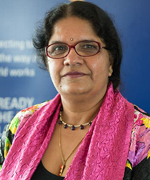The FSC’s three-month It Starts With Action campaign to put a spotlight on the financial wellbeing of women ended with a summit attended by more than 200 people.
FMA CEO Samantha Barrass said the financial services industry and employers need to think about what they can do to create opportunities for women to learn about the choices they have when it comes to managing their long-term financial wellbeing, adding that employers could create these opportunities in the workplace.
Other speakers at Auckland’s Park Hyatt venue on Thursday 28 July suggested employers take an active interest in the financial wellbeing of their staff – to identify those who need help when it comes to planning their financial future.
And that financial advisers should follow the community healthcare model by visiting the communities they want to help or work with, bearing in mind that in some communities investing and financial planning is a family affair, not an individual one.
Jan Tinetti, the government’s Minister for Women and Associate Minister for Education, suggested the growing ‘cashless society’ has led to some young people not understanding the value of money, and that while the education system covers mathematics – it doesn’t include financial literacy.

“At the moment we are in a refresh of the education curriculum and these are conversations I have been having with officials – that we can’t forget financial literacy and how important that is,” she said.
“Looking at financial literacy for women, we know there is a concern there, we know that women experience the world differently to men. And we know that when financial and economic shocks hit – as they are now – they hit unequally. And those in the most vulnerable situations are impacted the most – they are women.
Tinetti, who launched the Women’s Employment Action Plan in June, says she is committed to reducing the gender pay gap in New Zealand.
“In 2021 the gender pay gap was 9.1% overall. Until the pay gap is zero there is much more work to be done,” she said.
We are still sitting here in 2022 discussing the same things that I read about in 1980…
Dr Pushpa Wood, who has a long history in adult and financial literacy advocacy, says gender pay gap research in New Zealand can be traced back to at least 1980.
Dr Wood’s research interests include identifying trigger points that motivate people to change their financial behaviour.

She told the audience that she has been listening to the same conversations about the gender pay gap and the retirement income gap for 42 years.
“We are still sitting here in 2022 discussing the same things that I read about in 1980,” she said. “Whatever we have been doing we have not been doing it right. Or, we are not asking the right people to do what we need to do.”
Dr Wood said the issue is societal, not gender.
“It is an attitudinal issue, it is a national issue, it is an international issue,” she said. “We know the gap exists, but what are we doing about it? I keep hearing the same things…”
She asked each member of the audience to do something concrete to make a meaningful change “…what is the one guarantee all of you can give me today that in two years’ time we will not need to talk about it?”.
“Do we actually know the issue we are trying to resolve? Is it knowledge, confidence, paying debt? One at a time, let’s identify what we are trying to address.”
Dr Wood went on to list a string of government departments set up to report on income disparity issues for women over the last 40 years: “And we are still asking why women are disadvantaged,” she said. “And soon we will hear that ethnic women have been disadvantaged because that ministry has just been set up.”
Dr Wood suggested ways to solve the issue could include:
- Employers should perform a financial resilience health check on all staff
- Employers should identify gender pay gaps and resolve them within three years by using up to 20% of their annual profit
- When a woman has a child and is away from work, government should top up their KiwiSaver





